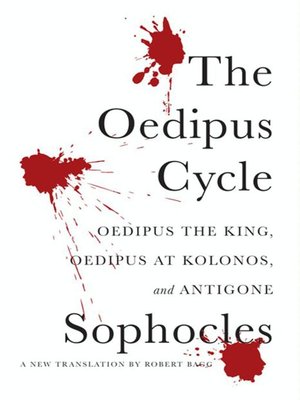

Sophocles stayed away from politics, though he was twice elected a general with the Athenian ruler Pericles (c. Though an anonymous biography of him exists, little information can be trusted due to lack of verification. 496 – c.406 BCE), born at Colonus to a wealthy manufacturing family, became one of the great Athenian tragedians. At the conclusion of the play, Antigone and Ismene return to Thebes, hoping to avert the war and civil strife.Title page from The Tragedies of Sophocles, volume two, George Wythe Collection, Wolf Law Library, College of William & Mary. Since Oedipus' final resting place is at Colonus, Athens receives his blessing and protection, and Thebes earns his curse. Only Theseus, however, actually witnesses the end of Oedipus' life. He leads Theseus, Ismene, and Antigone into a hidden part of the grove and ritually prepares for death. Suddenly, Oedipus hears thunder and declares that his death is at hand. Oedipus angrily curses Polynices, prophesying that he and his brother Eteocles will die at one another's hand.


Shortly after Creon leaves, Oedipus' other son, Polynices, arrives to beg his father's support in his war to regain the Theban throne from his brother and Creon. Theseus pledges his help, and when Creon appears threatening war and holding the daughters hostage for Oedipus' return, the Athenian king drives Creon off and frees the daughters. Oedipus refuses to return, and when Theseus arrives, Oedipus promises him a great blessing for the city if he is allowed to stay, die, and be buried at Colonus.

Meanwhile, Oedipus' other daughter, Ismene, arrives from Thebes with the news that Creon and Eteocles, Oedipus' son, want Oedipus to return to Thebes in order to secure his blessing and avoid a harsh fate foretold by the oracle. This discovery causes Oedipus to demand that Theseus, king of Athens, be brought to him. Oedipus and Antigone, his daughter and guide, learn they have reached Colonus, a city near Athens, and are standing on ground sacred to the Eumenides (another name for the Furies). During the course of the play, Oedipus undergoes a transformation from an abject beggar, banished from his city because of his sins, into a figure of immense power, capable of extending (or withholding) divine blessings.Īs the play opens, Oedipus appears as a blind beggar, banished from Thebes. In Oedipus at Colonus, Sophocles dramatizes the end of the tragic hero's life and his mythic significance for Athens.


 0 kommentar(er)
0 kommentar(er)
